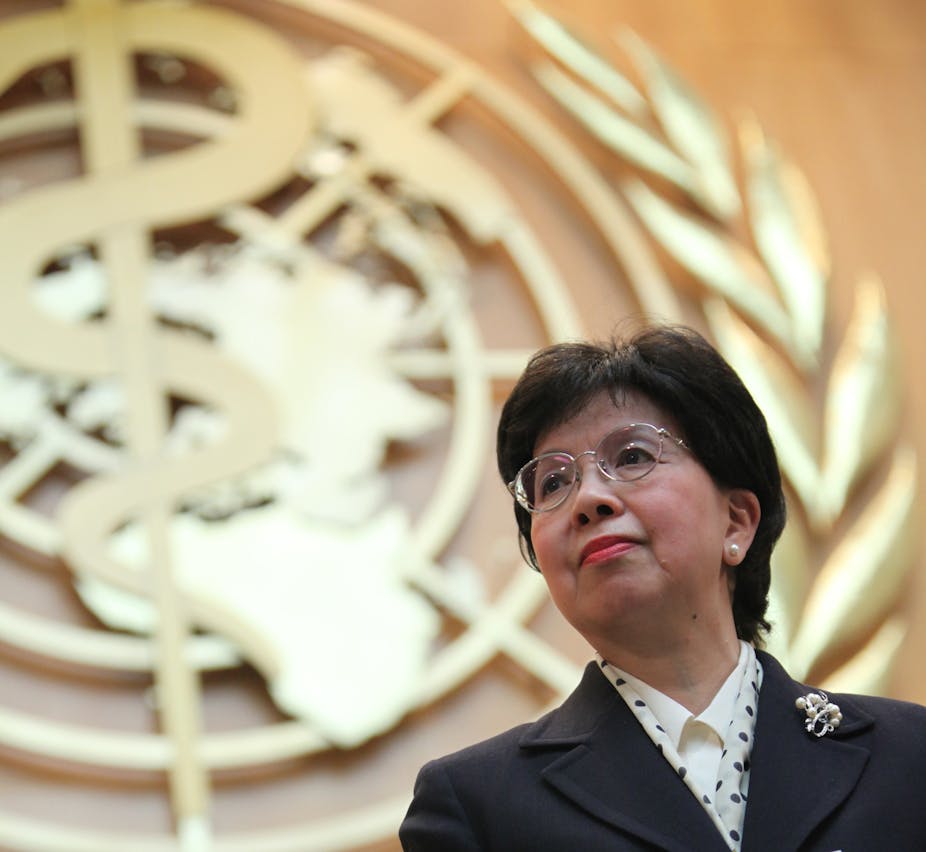The World Health Organisation (WHO) remains the most important player in global health despite growing problems with its structure and funding. Australia is in an excellent position to help modernise the WHO and save the organisation from irrelevance.
The WHO is a deeply political organisation. Each year the nations of the world turn up in Geneva for its annual meeting, the World Health Assembly, to discuss, consider, complain, cajole and carry on. But they do turn up.
Yet in its current form, my estimate is that WHO is probably funded at about 10% of what it needs to provide strong support in managing global health problems.
Still if you want to secure a multilateral international program in health you need to go through the WHO – there is no other show in town. So it survives.
When you have an old organisation or institution such as this, the question arises, “If we try to improve it, will it fall to pieces?”
So we need to very clear about why we are setting out to change the WHO before we ask, “So what are we going to do?”
Let’s consider the options posed by Professor Lawrence Gostin:
1) Increase the voice of stakeholders
The number of the World Health Organisation’s stakeholders is increasing as we identify and improve our understanding of the inter-related nature of the health impacts of food security, climate change, poverty, inequity and mass-migrations resulting from political unrest and the increasing competition for finite resources.
So there’s an obvious need for a higher degree of interagency coordination and collaboration embracing the WHO, Food and Agriculture Organization, International Labour Organization, UNICEF and UNHCR.
The upcoming UN High Level Meeting on Non-Communicable Diseases in New York provides an excellent forum for a range of voices to be heard.
Australia has the rare opportunity to provide leadership in these discussions and to cement our place as stakeholders with considerable practical expertise in population health.
2) Increase transparency and accountability
We send a lot of statistics to WHO and Australia could be strongly supportive of the organisation publishing more about where its money goes and what it achieves.
3) Regain control over the regions
The WHO regional offices have become highly autonomous and Australia can ensure that its participation in regional WHO activities is diplomatically tinged with recognition of the importance of keeping the head office on side and in the loop.
4) Establish legal authority
Australia has been a supporter of and is a signatory of the Framework Convention for Tobacco Control, one of the WHO’s two formal treaties.
The tobacco treaty is a good beginning, and we now need to look at the contribution that law can make around food security or minimum standards for healthy urban development.
Clearer governance structures, coordinated with the UN Office of the High Commissioner for Human Rights, could explore the interface between the legal frameworks around human rights and human health.
This could be done by strengthening the World Health Organisation’s partnership with the International Development Law Organisation. Australia could ensure that it supports efforts inside WHO to strengthen its legal capacity, especially, in relation to non-communicable disease control.
5) Ensure predictable sustainable financing
As with climate change, Australia could set an example by increasing its own contribution to the World Health Organisation and applying diplomatic pressure for a manifold scaling up of the funding base of WHO.
One has to sympathise with the the current Director General Margaret Chan, who has increasingly obtained funding outside the core budget to keep the ship afloat. This is a very tough one indeed.
That change is needed inside WHO was recognised by the Margaret Chan at this year’s World Health Assembly. And Australia can and should accept Dr Chan’s invitation and help WHO reform.
We should take every chance to ensure the World Health Organisation achieves its original grand objectives of leading the world into an unprecedented era of good health.
And we can do this by assisting with the achievement of the major governance reforms that professor Gostin has proposed. We just need the political leadership and public commitment to achieve these goals.

